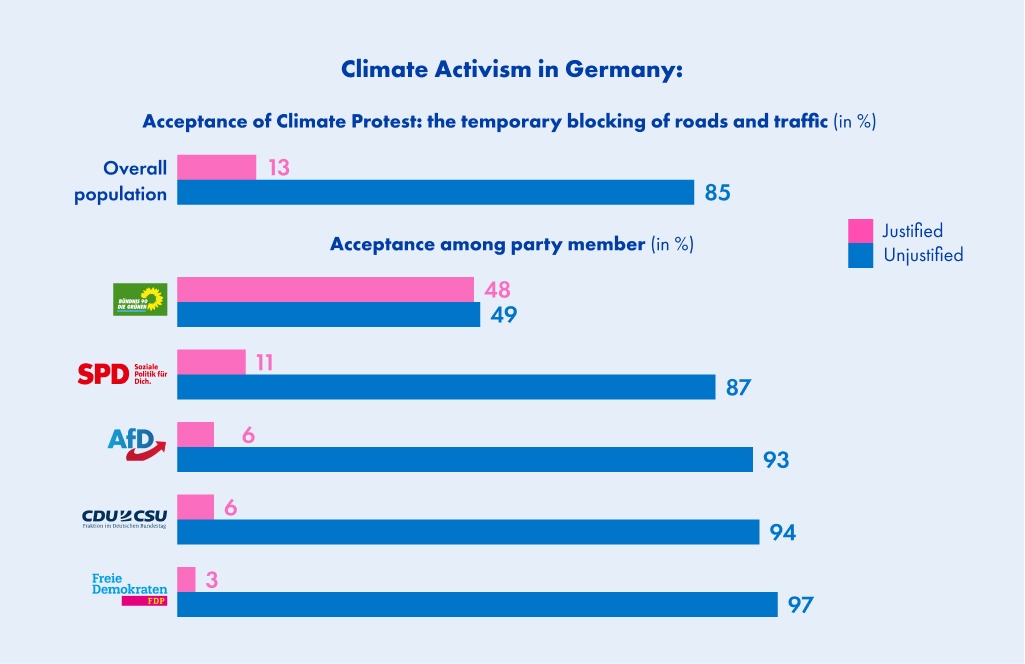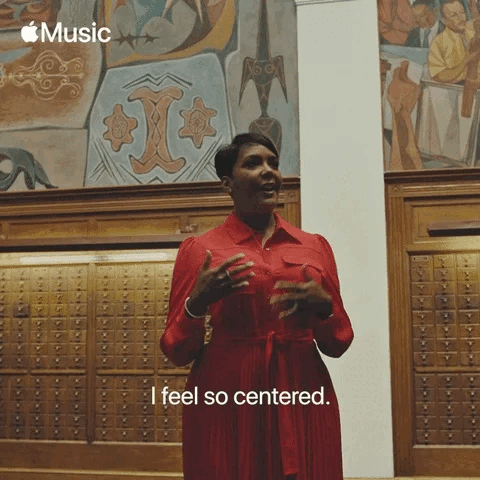Issue #135
Guten Morgen! The Parliamentary Summer Break is so close there’s almost a whiff of sunscreen, the beach, and cocktails in the air. But before we earn that vacation, we have some more news for you about what’s been going on over here the past week. This edition, our special guest contributor, Dr. Steven E. Sokol, President and CEO of the American Council on Germany, is back to give us a peek into the 2024 U.S. presidential race – but puts a European spin on it. Then, we have another new face – Ansgar Baums, current Helmut Schmidt Fellow and the latest addition to the senior team at Erste Lesung, which we are psyched about #welcometotheteam. In his WOOM he gives us a brief insight on his experiences around the “securitization” of the IT industry. Finally, check out our main articles to find out why half of Brussels is shut down, why Jens Stoltenberg won’t be able to leave Brussels just quite yet, and what the buzz is on digital currency in the EU. Happy reading and bis bald! Anna Szilvia EU Summit or Three-Ring Circus? You Decide! Blocked roads all over Brussels? Police everywhere? Helicopters buzzing overhead? That can only mean one thing: it’s Summit time in the European Capital. Leaders from the EU’s Member States have arrived in Brussels to discuss the most pressing issues facing the Union – and everything seemed to be going according to plan. Until Thursday night that is.* Earlier this month, we reported that the Member States had agreed on a deal to modernize Europe’s migration policy. The deal went through all the necessary procedures – meaning 55% of Member States, representing at least 65% of the EU population, voted in favor. With that, the Member States’ positions are final. Poland and Hungary were in the camp that voted against the agreement, and on Thursday it became clear they haven’t accepted defeat. Specifically, Hungarian Prime Minister Viktor Orbán brought everything to a halt when he stated the migration deal was unacceptable and Poland echoed this sentiment: Leaders from both countries refused to sign off on the final statements resulting from the Summit unless “their concerns were addressed.” While Hungary just flat out refused to go along with the deal, Poland was trying to be craftier – proposing a referendum on the topic and even trying to work an amendment into the summit conclusions that there is a need for unanimity on the migration topic. Both ideas were rejected. Normally this kind of protest would lead to extensive negotiations that run deep into the night. Not this time. After the discussions stalled at 1AM, everyone decided to go home and revisit the topic on Friday. In one way, this was a minor victory for Poland and Hungary, as the summit conclusions still hang in the balance. On the other hand, the other EU leaders sent a clear message: this argument is not worth losing a night’s sleep over. We’ll keep you updated. Too Good for the Job Imagine working for an internationally renowned and respected institution, and not just as an employee, but as the head. It’s a dream job for many. However, after several years, it’s natural to feel exhausted. One can imagine the immense pressure, responsibilities, and the toll it takes on you. So, you decide to quit. You genuinely try, again and again. But somehow, they don’t let you. Hard to believe, right? This seems to be the fate of Jens Stoltenberg. He became the Secretary General of NATO in 2014 and extended his mandate for a second term until 2022. So far, so good. But then he was ready to step down. He even had a new job lined up. In early February 2022, it was announced that he would become the new head of the Norwegian Central Bank. However, Russia’s invasion of Ukraine thwarted his plans. Stoltenberg extended his contract for another year. Now, the same situation is repeating itself this year. The war continues, Stoltenberg’s term is ending, and there is no viable alternative in sight. After weeks of speculation, it now seems clear that he will extend his term for another year, once again. So, what makes him so special? On one hand, he is an experienced leader and negotiator who managed to keep NATO together even when Trump threatened to withdraw from the alliance. On the other hand, our current times are particularly troublesome, and the alternatives to Stoltenberg are not convincing. Moreover, Stoltenberg enjoys widespread support within the alliance and among major allies like the USA and Germany. As a result, it comes as no surprise that many sources are reporting an agreement to extend his term of office. The official announcement regarding his extended term is expected in the upcoming week. In 2024, after 10 years, Jens Stoltenberg might have another opportunity to leave his position. In any case, these experiences will serve as a lesson: Don’t be too good at your job! Digital Euro: Full… Half… Quarter Steam Ahead For a while now, there have been whispers here and there that a digital Euro could be on its way. This week, those whispers were made public when the Commission released its proposal for the “Digital euro package.” As part of this package, the Commission came up with regulation proposals to establish- and monitor use of the digital euro and opened a public consultation where stakeholders can submit feedback (evidence-based, of course) to the Commission proposal until August 25th. Under the proposal, users of the digital currency will be able to hold their reserves in digital wallets and pay like you would with normal cash. Sounds great, right? Well… not everyone seems to think so. To accompany the package, Commission Vice President Valdis Dombrovskis released a blog post titled “Why Europe needs a digital euro.” The post, which reads more like a lobbying paper than a statement from one of Europe’s most important decision-makers, clearly shows that there’s still a lot of convincing to be done. As is usually the case when it comes to digital topics in the EU: data privacy is concern number one. Critics have voiced concern that governments would be able to track citizens’ spending in this digital solution. It seems that even promises from the Commission won’t be able to address these concerns. Banks are also concerned that “independent” digital euro wallets will lead to an outflow of capital away from banks. The Commission has also addressed this by suggesting a cap of 3,000 euros in a wallet. Finally, and this is possibly something that will appeal to Europeans: as the US is currently behind when it comes to a digital dollar, decision-makers in the EU hope the introduction of the digital euro will help close the gap to the US dollar in terms of being the world’s reserve currency. Now, it’s up to the Parliament and Council of the EU to hash out the details. We’ll keep you updated. Source: infratest dimap THE (GUEST) HOUSE’S VIEW: by Dr. Steven E. Sokol, President and CEO of the American Council on Germany “Looking Ahead to 2024: In U.S. Politics, 16 Months is an Eternity” In almost every conversation I have with Germans, the first or last question is inevitably whether or not Donald Trump could once again be elected President. The short answer is yes, but it is far from certain. From these exchanges – and the plethora of articles by journalists, policy experts, and talking heads – it is clear that Europeans are already very concerned about the outcome of the presidential election in the United States next year. In politics – and especially U.S. politics – 16 months is an eternity, and a lot can happen between now and then. We do not know who the Republican candidate for president will be. We do not know if there will be a third party candidate. And, we certainly do not know who the next U.S. president will be. U.S. election cycles are long and their consequences can be wide-reaching. Europe should prepare for political naval-gazing from the U.S. and an America that is likely to be self-absorbed. This could well continue beyond January 2025 – regardless of who ends up in the White House. What to watch After much speculation regarding what might happen on the Democratic side, President Joe Biden launched his reelection bid in late April. Barring any unforeseen events, he will be the Democratic candidate. As of late June, a dozen Republicans have launched campaigns for the party’s nomination – but with nearly a year until the first presidential primary, a lot can change before voters head to the polls. Former President Donald Trump remains ahead of the other Republican presidential hopefuls, but legal challenges over his handling of sensitive government documents and investigations related to the 2020 presidential election could roil his presidential ambitions. The expansive field underscores the jockeying we can expect in the coming months: Trump as the frontrunner with Ron DeSantis as his principal challenger, and everyone else. For up-to-date polling, look here. Based on polls and conversations with Republicans, it seems as though the party’s rank and file break down into three camps: about a quarter are strong pro-Trump supporters regardless of the investigations surrounding him and about a quarter are strong opponents to Trump. The remaining fifty percent of Republican voters are undecided about Trump. We will see the primary candidates going after their support. With such a wide field of candidates, there are three races going on this primary season: First and foremost, it is a race for the Republican nomination as president. It is also a winnowing of candidates for vice president. For those in the long-game, it is a play with 2028 in mind – because if 2024 is a repeat Biden-Trump race, regardless of who wins he will not be able to run again. Come November, if it is in fact a race between Biden and Trump, voter turnout will be critical. On both sides of the aisle, there are concerns about the candidates and their ability to perform. This is especially true among younger voters who recognize that Biden will be 82 should he win a second term and Trump will turn 78 in 2024. Another factor are independent voters, an increasing portion of the American electorate, who are really the swing voters who determine general elections. While many express concern about Biden’s age or continued high inflation, a sizeable majority have negative views of Trump, especially following his indictment for mishandling of classified documents after leaving office. What to watch out for Beneath the scrum of politics, a profound debate is unfolding about America’s future foreign policy orientation. Europeans should note that although Democrats and Republicans are aligned on some issues – such as the strategic rivalry with China, protecting domestic manufacturing, and access to strategic technologies – they disagree on subjects of crucial importance to Europeans such as climate change, the war in Ukraine, and the United States’ trade relations with its allies. Many Europeans were taken aback when the United States withdrew from the Paris Climate Agreement under Trump and watched as he weakened the Environmental Protection Agency (EPA). Biden has reversed these decisions. He has also worked with German Chancellor Olaf Scholz to promote the idea of a “Climate Club” – a group of countries which want to transform their economies to be climate neutral. Co-Chair of the German Green Party, Ricarda Lang, recently said: “Right now, the U.S. is showing what it is made of in terms of climate policy… If that were to change again, a key driver for climate action worldwide would be lost.” A Republican administration is likely to be more interested in increasing investments in oil, gas, and nuclear power. Notwithstanding the 100 billion Euro Sondervermögen to revitalize the Bundeswehr, renewed commitments from the Chancellor and his new Defense Minister that Germany will meet its NATO commitment of spending two percent of GDP on defense, and Berlin’s steadfast support of Ukraine, there continues to be concern that Germany is not meeting its obligations. There is a sense that Germany should be paying more for a war in its own back yard. DeSantis went so far as to say that “the Europeans really need to do more [on Ukraine]. I mean, this is their continent. The U.S. has provided security for them. And yes, Poland — there’s some that are doing stuff, and that should be appreciated. But Germany, they’re not doing anything.” It has long been a Republican criticism that Germany is a freeloader and takes advantage of the U.S. security guarantee. And, in some Republicans circles the willingness to continue supporting Kyiv is beginning to fade. On trade, both Trump and Biden have pursed an “America First”-style approach. The Inflation Reduction Act – with its subsidies of over $370 billion for climate-friendly products which benefits domestic producers – has caused consternation across Europe. And, both Republicans and Democrats believe Germany is too economically dependent on China. No time like the present For Europeans, who remain highly dependent on the United States, navigating the turbulent world of U.S. domestic and foreign policy remains a matter of existential importance. Accordingly, European anxiety about a potential Republican president in 2025 is particularly high. National politics will shape transatlantic relations. A conservative president might bring more irritations. Amid so much uncertainty, Europe should brace itself for changes in 2025. Europeans must not simply hope they can accommodate potentially dramatic shifts in U.S. policy in the coming years but should instead take steps now to enhance and protect their own position in the world. Regardless of who wins the 2024 presidential election, Europe needs to be more self-reliant and self-sufficient. Germany’s recently released National Security Strategy is a small step in this direction – but time will tell if Berlin has the financial commitment and political will to bring it to life. The implementation cannot take an eternity. TALKING GEOTECH IN DC No topic receives more attention in DC these days than the geopolitical competition with China in tech (Ukraine is a distant second). In a rare case of bipartisan consensus, half a dozen important laws have been passed over the last years that are aiming at protecting America’s technology leadership over China. Some of it is quite radical: Far-reaching export controls, strict inbound investment regulation, a complete ban of Huawei from US telco networks, and a pending case against TikTok. What we see is a “securitization” of the IT industry. Say goodbye to your Silicon Valley libertarian ideas. For the formidable think tank industry, it is a feast: Brookings, CSIS, CNAS, New America, Carnegie, GMFUS – it is impressive how much brain power is activated to formulate strategy and policies. However, what is curious about the current situation is the lack of controversy. Visit any panel discussion on geotechnology issues – there is barely any dissent on “being tough on China”. Think tanks and both parties sing from the same prayer book. In times where both parties cannot agree on anything else, this is a rare thing. But is it healthy? I wonder what is scarier: A deeply divided US or a US without any dissent on one of the most important policy topics of our times. I would prefer something in the middle, honestly. By the way – in roughly 40 conversations I had on tech over the last three weeks, Europe wasn’t mentioned once. Let that sink in. Issue #135


FIRST, SOME SOLID INTEL:
TAKE A BREAK, GIVE YOUR EYES A REST.


LONG STORY SHORT:
WHAT’S ON OUR MINDS:





